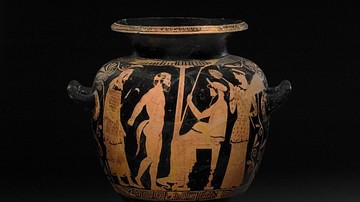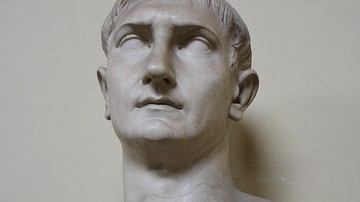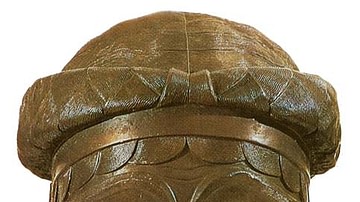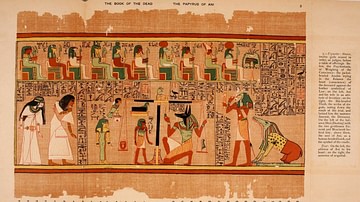Search
Search Results

Definition
Midas
Midas was a mythical king of Phrygia in Asia Minor who was famous for his extraordinary ability to change anything he touched into gold. This gift was given to him by Dionysos in thanks for his hospitality to the wise satyr Silenus. Midas...

Definition
Trajan
Trajan, or Marcus Ulpius Traianus, was Roman emperor from 98 to 117 CE. Known as a benevolent ruler, his reign was noted for public projects which benefitted the populace such as improving the dilapidated road system, constructing aqueducts...

Definition
Sargon of Akkad
Sargon of Akkad (r. 2334 - 2279 BCE) was the king of the Akkadian Empire of Mesopotamia, the first multi-national empire in history, who united the disparate kingdoms of the region under a central authority. He is equally famous today as...

Definition
Odin
Odin (Old Norse: Óðinn) is the main god in Norse mythology. Described as an immensely wise, one-eyed old man, Odin has by far the most varied characteristics of any of the gods and is not only the deity to call upon when war was being prepared...

Definition
Francisco Pizarro
Francisco Pizarro (c. 1478-1541) was a conquistador who led the Spanish conquest of the Inca civilization from 1532. With only a small group of men, Pizarro took advantage of his superior weapons and the fact that the Incas were weakened...

Definition
Ptolemaic Dynasty
The Ptolemaic dynasty controlled Egypt for almost three centuries (305-30 BCE), eventually falling to the Romans. Oddly, while they ruled Egypt, they never became Egyptian. Instead, they isolated themselves in the capital city of Alexandria...

Definition
The Negative Confession
The Negative Confession (also known as The Declaration of Innocence) is a list of 42 sins which the soul of the deceased can honestly say it has never committed when it stands in judgment in the afterlife. The soul would recite these in the...

Definition
Artemisia I of Caria
Artemisia I of Caria (l. 480 BCE) was the queen of the Anatolian region of Caria (south of ancient Lydia, in modern-day Turkey). She is most famous for her role in the naval Battle of Salamis in 480 BCE in which she fought for the Persians...

Definition
Kublai Khan
Kublai Khan (Qubilai-Qan) was the ruler of the Mongol Empire from 1260 to 1294. His accomplishments include establishing Mongol rule in China under the name of the Yuan Dynasty (1271-1368), thus becoming the first non-Chinese to rule the...

Definition
Viking Ships
Viking ships were built by the Scandinavians during the Viking Age (c. 790 CE - c. 1100 CE) and were used both within Scandinavia and beyond for purposes ranging from being the most important means of transport to trade and warfare. Viking...